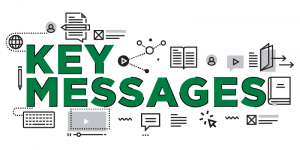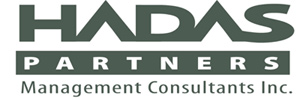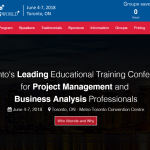Here’s a scenario: Your project is underway and it’s still in the early days. But people are starting to ask questions about your project. You need to tell them something. And you want to share information to start building support for what you are doing. However, it seems too early, and you don’t think you have a lot of stuff to begin communicating.
Does this sound familiar? Has this happened to you already, maybe repeatedly? Welcome to the club!
An earlier blog dealt with how project communications is different from regular corporate communications, and how to plan for this. This blog will help you with what to say and when.
You have no doubt heard the common wisdom that it’s important to communicate early and that you cannot over communicate. In general both statements are true, but it still does not help you when you feel you have little to say. This is especially true at the beginning of a project.
So how do you square this circle?
Three Step Formula
 First, it requires a subtle mindset shift. Managing a project is all about details, but with early stage communications details are not important. So it’s actually easier. At this stage nobody expects you to know most of the details. If people ask for them, because they’re anxious, you can just give them a version of the pat phrase, “It’s too early to know that.”
First, it requires a subtle mindset shift. Managing a project is all about details, but with early stage communications details are not important. So it’s actually easier. At this stage nobody expects you to know most of the details. If people ask for them, because they’re anxious, you can just give them a version of the pat phrase, “It’s too early to know that.”
Second, it requires you to look at the reason for communicating from a different perspective. The purpose of communications is to inform, right? Wrong! During the first several weeks of a project the purpose of communications is to build support!
That leads to the third point, framing messages. To build support, your messages in the beginning need to be aspirational, positive, and at a high level. Remember, facts don’t build support, emotions do. That is why storytelling is such a hot subject today when it comes to business communications and corporate presentations.
Framing Messages – 6 Questions to Ask
Here are some questions you can ask yourself (and your team) to help you frame these initial messages.
- Why is your project important? What will it achieve that is positive? How will your company be better off?
- Why is your project necessary? What would happen if your project did not go ahead? How would your company be worse off?
- How does your project fit into the overall corporate strategy? This link to strategy gives your project a sense of inevitability to it. How can anyone object to a project that moves the company strategy forward?
- Which group(s) in your company stand to benefit from your project, and how? What is expected to be better for them?
- What will remain the same even after the project has been fully implemented? You also need to reassure people that your project will not change everything about their working world.
- How can they support your project? That’s what you want from early communications, right? So tell people how they can support you succeed in your project. By the way, this is officially known as “The Ask”. It’s important to end your message here. It’s your ‘sale’.
Finally, somewhere at the bottom, provide details (this is the only detail you will need to provide right now) on whom can they contact to get more information.
Example from Actual Project
To help you along, here is an example of early stage key messages from one of our projects (sanitized to protect sources).
- We want our management and staff to spend more time with clients and to focus on building our high growth areas.
- At the same time, our business is becoming more complex, more price sensitive, and more technologically advanced. We must respond to protect our market share and margins. We really have no choice.
- That is why we are implementing this new onshore processing centre. It will provide a more consistent, efficient and cost effective method of delivering our more routine services to our clients.
- Our corporate objective is to protect our profitable businesses. This project will enable us to price our services at a level to actually grow our market share in this area of our business, while freeing up time so that our management and staff can focus on our clients and building growth.
- What will not change, however, is our focus on delivering innovative and high value services to our clients.
- We are excited about our transformation journey and will communicate with you regularly on progress. We need you to participate actively by sharing knowledge, asking constructive questions, and raising concerns together with solutions.
 That wasn’t so hard now, was it?
That wasn’t so hard now, was it?
You can repeat this formula on all of your future projects. And eventually, rather than being hesitant about communicating early, you will want to push your team and sponsors to get these messages out from the beginning!
Happy project travels, and see you next time!











